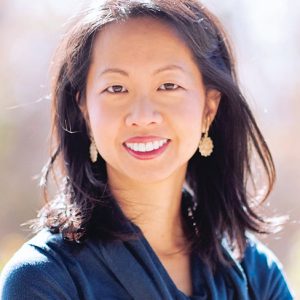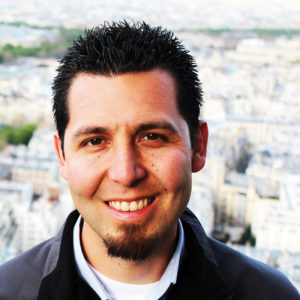By Cindy M. Wu
 The Church as a fellowship of believers is nowhere more exemplified to me than at Midsouth Camp. For one frenetic and sweltering week at the end of every summer, children, young adults, and older adults gather in the piney woods of central Texas for one of the best weeks of the year. Directed by Dale Lusk, international director of global engagements for Serve Globally, for 30 years and counting, Midsouth Camp is a mom-and-pop (literally) camp organized by volunteers from among the 20+ churches that compose the Midsouth Conference of the Evangelical Covenant Church. We borrow the grounds of Frontier Camp and take on all the programming for seven days of life-changing discipleship and fellowship.
The Church as a fellowship of believers is nowhere more exemplified to me than at Midsouth Camp. For one frenetic and sweltering week at the end of every summer, children, young adults, and older adults gather in the piney woods of central Texas for one of the best weeks of the year. Directed by Dale Lusk, international director of global engagements for Serve Globally, for 30 years and counting, Midsouth Camp is a mom-and-pop (literally) camp organized by volunteers from among the 20+ churches that compose the Midsouth Conference of the Evangelical Covenant Church. We borrow the grounds of Frontier Camp and take on all the programming for seven days of life-changing discipleship and fellowship.
Pulling off this feat requires a breadth of experience, talents, and resources. Leaders collaborate on devotions and activities based around a biblical theme, working toward a common mission: to provide an experience where kids feel loved, unplug in nature, experience God, and have tons of fun. Campers are intentionally assigned to cabins with kids from different churches and socioeconomic or cultural backgrounds, so they can be exposed to the fullness of the diversity of the Midsouth Conference. Counselors have ranged in age from 18 to 70 (yes, 70!), some having attended Midsouth Camp since childhood and some entirely new to the Covenant. As the denomination’s most racially diverse summer camp, we are a multi-colored, multi-language, multi-national, multi-generational picture of heaven.
This summer I will be serving at camp for my sixth year, as a division leader overseeing counselors. Between 7 am and 10 pm, I rarely take a break. There are too many activities to try, too many deep conversations to ponder, and too many boat rides to enjoy with my expanded church family. For me, the most beautiful part of camp is seeing kids and adults bonding across boundaries and realizing we all belong to each other and to the larger Covenant fellowship of believers.

Cindy M. Wu
Cindy M. Wu is co-founder of Mosaic Formation, a ministry serving leaders of underserved communities. She is the author of books on global Christianity and refugees and is ordained with the Covenant.
By Marco Ambriz
This affirmation contains a dual reality for us as Christ’s body. First of all, the word “fellowship” as a noun describes what we are. It is our very identity. As people who have received God’s loving invitation to be his children, we get to be called the body of Christ. Because of God’s new creation in Christ, we are a fellowship of believers by our very nature. This fellowship encompasses every possible point of diversity and difference that exists in the body, including gender, culture, race, politics, economics, theology, and traditions. This fellowship also transcends the barriers of time and space to include our sisters and brothers around the world and throughout all of human history. Because of God’s miraculous grace, a fellowship of believers is who we are.
Second, the word “fellowship” as a verb is what we are called to do. As a fellowship of all kinds of believers, we are called by Christ to demonstrate our identity by how we love one another, intentionally practicing community with one another in small and great ways. Every time we step out of our individual schedules, traditions, preferences, and comfort zones to extend God’s love to one another, we are living out our identity as the fellowship of believers. Through every act and instance with our God-given extended family, we actualize our birthright as God’s children. For believers in God’s miraculous grace, fellowship is what we do.
I pray that God will fill us with renewed wonder and witness to the dual reality that we get to be a fellowship of believers and that we’re called to practice that fellowship with all kinds of believers here on earth, as it will be in heaven.

Marco Ambriz
Marco Ambriz serves as lead pastor of First Covenant Church Oakland, California, and serves on the Covenant’s Board of Ordered Ministry.
INTRODUCTION
Covenant Glue
PART ONE
The Centrality of the Word of God
PART TWO
The Necessity of New Birth














